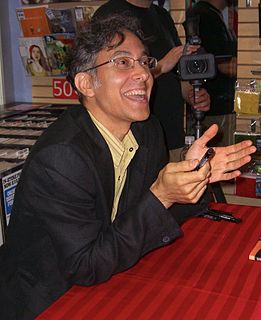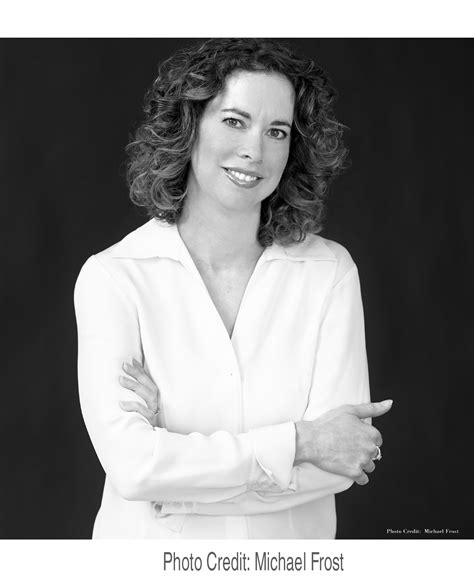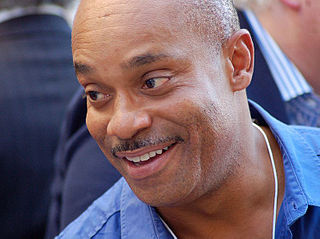A Quote by David Mazzucchelli
I remember that Charles Schulz, at the end of his life, had eyes full of tears for Charlie Brown. I thought about the reason for all his emotion: he had lived for 50 years with them.
Related Quotes
There were times when it appeared to Dorian Gray that the whole of history was merely the record of his own life, not as he had lived it in act and circumstand, but as his imagination had created it for him, as it had been in his brain and in his passions. He felt that he had known them all, those strange terrible figures that had passed across the stage of the world and made sin so marvellous, and evil so full of subtlety. It seemed to him that in some mysterious way their lives had been his own.
The utter failure came at the Crucifixion in the tragic words, 'My God, my God, why hast thou forsaken me?' If you want to understand the full tragedy of those words you must realize what they meant: Christ saw that his whole life, devoted to the truth according to his best conviction, had been a terrible illusion. He had lived it to the full absolutely sincerely, he had made his honest experiment, but it was nevertheless a compensation. On the cross his mission deserted him. But because he had lived so fully and devotedly he won through to the Resurrection body.
This is a man with an old face, always old... There was pathos, in his face, and in his eyes. The early weariness; and sometimes tears in his eyes, Which he let slip unconsciously on his cheek, Or brushed away with an unconcerned hand. There were tears for human suffering, or for a glance Into the vast futility of life, Which he had seen from the first, being old When he was born.
He had thrown himself away, he had lost interest in everything, and life, falling in with his feelings, had demanded nothing of him. He had lived as an outsider, an idler and onlooker, well liked in his young manhood, alone in his illness and advancing years. Seized with weariness, he sat down on the wall, and the river murmured darkly in his thoughts.
He pulled the Carstairs family ring from his finger and held it out to Will. "Take it." Will let his eyes drift down toward it, and then up to Jem's face. A dozen awful things he could say, or do, went through his mind. One did not slough off a persona so quickly, he had found. He had pretended to be cruel for so many years that the pretense was still what he reached for first, as a man might absently turn his carriage toward the home he had lived in for all his life, despite the fact that he had recently moved. "You wish to marry me now?" he said, at last.
Ancient eyes had stared at me, filled with ancient grief. And something more. Something so alien and unexpected that I'd almost burst into tears. I'd seen many things in his eyes in the time that I'd known him: lust, amusement, sympathy, mockery, caution, fury. But I had never seen this. Hope. Jericho Barrons had hope, and I was the reason for it. I would never forget his smile. It had illuminated him from the inside out.
Bruno opened his eyes in wonder at the things he saw. In his imagination he had tough that all the huts were full of happy families, some of whom sat outside on rocking chairs in the evening and told stories about how things were so much better when they were children and they'd had nowadays. He thought that all the boys and girls who lived there would be in different groups, playing tennis or football, skipping and drawing out squares for hopscotch on the ground. As it turned out, all the things he thought might be there-wern't.'' -The boy in the striped Pajamas
“Run,” he whispered. “Run.” “No, Rand,” I said, brushing the dirt from his face. “I’m tired of running.” “Forgive me, please.” He clutched my hand as his eyes beseeched me through tears of pain. “You’re forgiven.” He sighed once, then stopped breathing. The shine in his brown eyes dulled. I pulled his hood over his head.
His cheeks were slick with tears that spilled over his diamond eyes, a ceaseless flow he neither noticed nor appeared to care about. And she had a feeling it was going to be a while before the leaking stopped-an inner artery had been nicked and this was the blood of his heart, spilling out of him, covering him.
I remember Elvis as a young man hanging around the Sun Studios. Even then, I knew this kid had a tremendous talent. He was a dynamic young boy. His phraseology, his way of looking at a song, was as unique as Sinatra's. I was a tremendous fan, and had Elvis lived, there would have been no end to his inventiveness.
It was 1995, the year Ben Crenshaw won the Masters. I was watching on TV, and I remember watching him sink his final putt on the 18th hole. He broke down in tears because his coach, Harvey Penick, had just died. I sat there watching with a box of Kleenex, wiping tears from my eyes and going, 'OK, this is crazy - I'm crying over golf!'
I saw a very old man, literally eating his own human waste out of hunger. I went to the nearby hotel and asked them what was available. They had idli, which I bought and gave to the old man. Believe me, I had never seen a person eating so fast, ever. As he ate the food, his eyes were filled with tears. Those were the tears of happiness.
His brother maintained that what sent people backing away was neither his size nor his mother's blood, but solely the expression on his face. To test Samuel's theory, Charles had tried smiling - and then solemnly reported to Samuel that he had been mistaken. When Charles smiled, he told Samuel, people just ran faster.








































